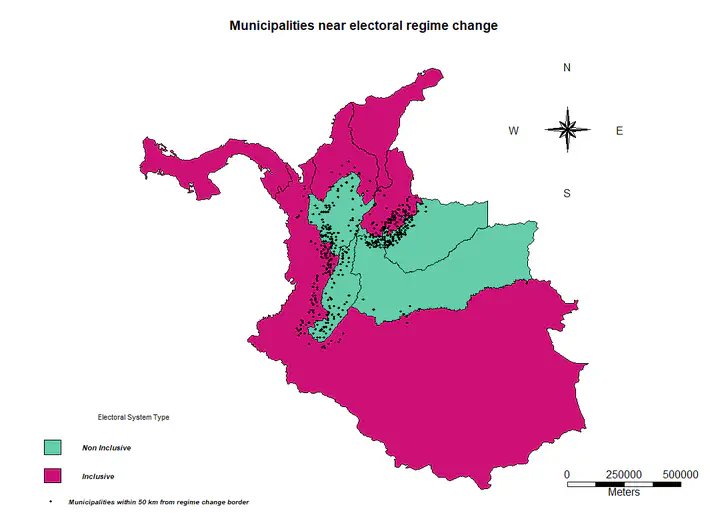Can early political inclusion experiences determine future turnout?

Abstract
This paper exploits the different degrees of franchise extension among states during Colombia’s federal republic to estimate the effect of early politically inclusive institutions in long-run turnout. For roughly twenty years, Colombia lived a period of social and political stability under a federal regime in which the states had the power to determine, among other dispositions, who was entitled to the right to vote. Consequently, this period of relative peace in the republic (1863-1876) enabled various degrees of franchise extension among the states. However, upon the arrival of the 1886 new political constitution, the right to vote was again restricted in the whole country, and Colombia would not experience universal male suffrage again until 1936. Using a spatial regression discontinuity design, we show that municipalities, where the franchise was more extended during the peaceful period of the federal republic, exhibited higher voter turnout levels once the franchise was extended again in the 20th century. Moreover, we show that this positive effect of an early experience of a politically inclusive regime persists along the 20th century. We propose that the emergence of a democratic culture on the municipalities on politically inclusive regimes is the mechanism through which this effect on turnout levels appears and persisted for over a century.